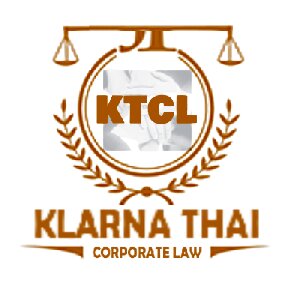Best Education Law Lawyers in Watthana
Share your needs with us, get contacted by law firms.
Free. Takes 2 min.
List of the best lawyers in Watthana, Thailand
About Education Law in Watthana, Thailand
Education law in Watthana, part of Bangkok, Thailand, governs the rights, responsibilities, and procedures related to the education sector in this district. It is shaped by national legislation, including the National Education Act B.E. 2542 (1999) and subsequent amendments, as well as regional regulations that address the administration of educational institutions, student rights, teacher qualifications, curriculum standards, and special education. These laws ensure that educational standards are maintained and that all parties involved in the education process are granted appropriate rights and protections.
Why You May Need a Lawyer
Individuals and organizations in Watthana may face various situations where legal assistance related to education law becomes essential. Common scenarios include disputes over school admissions, disciplinary actions against students or teachers, discrimination or bullying cases within schools, issues concerning special education needs, contractual matters for private institutions, and compliance with local and national education regulations. A lawyer specializing in education law can provide guidance, represent clients before administrative bodies or courts, and help negotiate settlements to resolve conflicts effectively.
Local Laws Overview
The legal landscape of education in Watthana is strongly influenced by Thai national education laws, but local interpretation and implementation may vary. Noteworthy aspects include:
- Compulsory education for children aged 6 to 15 years, typically from primary to lower secondary level
- Government oversight of both public and private schools to ensure quality and compliance with licensed operation requirements
- Strict protocols regarding student discipline, including suspension or expulsion, with a focus on protecting student rights
- Regulations requiring qualified teachers and standard curricula as mandated by the Ministry of Education
- Laws against discrimination, protecting students with disabilities and ensuring access to inclusive or special education services
- Parental rights and responsibilities in decisions about their child’s education
- Administrative complaint mechanisms for parents or students dissatisfied with school decisions or treatment
While central and local authorities share responsibilities, schools in Watthana must also follow any special directives issued by the Bangkok Metropolitan Administration.
Frequently Asked Questions
What rights do parents have regarding their child’s education in Watthana?
Parents have the right to participate in their child’s education, choose suitable schools, be informed about academic progress, and address grievances through established complaint procedures.
Can a student be expelled from school, and what is the process?
Expulsion is only allowed under strict circumstances and requires due process, including proper investigation, the right to a fair hearing, and an opportunity to appeal the decision.
Are private schools regulated differently from public schools?
Private schools in Watthana must comply with additional licensing and regulatory requirements but are subject to the same educational standards and child protection laws as public schools.
What legal protections do students with disabilities have?
Students with disabilities are entitled to appropriate accommodations and access to educational resources, as mandated by Thai law, including the Persons with Disabilities Education Act.
How are cases of bullying or discrimination handled legally?
Schools are required to implement anti-bullying and anti-discrimination policies. Victims can file complaints with the school, local education offices, or relevant government agencies. Legal action may be pursued in severe cases.
Can foreign students access public education in Watthana?
Foreign students may attend public schools if they meet certain immigration and registration requirements. Some restrictions or additional fees may apply.
What should I do if a school refuses admission to my child?
You can request a written explanation from the school, consult with local education authorities, or seek legal advice to determine if your child’s rights have been violated and what remedies are available.
Are homeschooling or alternative education options recognized by law?
Homeschooling is legally recognized in Thailand but requires registration and approval from educational authorities, ensuring that curriculum standards are met.
What recourse do teachers have in employment disputes with schools?
Teachers may pursue remedies through labor dispute mechanisms or administrative appeals, depending on the issue. Legal consultation is advisable for navigating employment contracts and disciplinary actions.
How can I file a complaint about an educational institution in Watthana?
Complaints can be submitted to the school’s administration, the local education office, or the Office of the Basic Education Commission. Written complaints are recommended, with supporting evidence where possible.
Additional Resources
If you need more information or support, the following resources may be helpful:
- Ministry of Education - for national policies, school standards, and dispute resolution processes
- Bangkok Metropolitan Administration Education Department - for local school governance and complaints
- Office of the Basic Education Commission (OBEC) - for public school regulations and guidelines
- Thai Lawyers Council - for legal referrals and consultations regarding education law
- Ombudsman Thailand - for citizen complaints about government-run educational institutions
- Nonprofit organizations specializing in children’s rights and education advocacy
Next Steps
If you need legal assistance with an education law issue in Watthana, follow these steps:
- Document all relevant events, communications, and evidence related to your concern
- Contact your school’s administrator or the local education office for clarification or informal resolution
- If the issue remains unresolved, consult a qualified lawyer specializing in education law for tailored advice
- Your lawyer can advise on your rights, represent you in meetings or proceedings, and help file necessary documents or appeals
- Stay informed about your rights and the applicable procedures by consulting official resources and legal professionals
Taking these steps can help ensure that you protect your interests and achieve a fair outcome in any education law matter in Watthana, Thailand.
Lawzana helps you find the best lawyers and law firms in Watthana through a curated and pre-screened list of qualified legal professionals. Our platform offers rankings and detailed profiles of attorneys and law firms, allowing you to compare based on practice areas, including Education Law, experience, and client feedback.
Each profile includes a description of the firm's areas of practice, client reviews, team members and partners, year of establishment, spoken languages, office locations, contact information, social media presence, and any published articles or resources. Most firms on our platform speak English and are experienced in both local and international legal matters.
Get a quote from top-rated law firms in Watthana, Thailand — quickly, securely, and without unnecessary hassle.
Disclaimer:
The information provided on this page is for general informational purposes only and does not constitute legal advice. While we strive to ensure the accuracy and relevance of the content, legal information may change over time, and interpretations of the law can vary. You should always consult with a qualified legal professional for advice specific to your situation.
We disclaim all liability for actions taken or not taken based on the content of this page. If you believe any information is incorrect or outdated, please contact us, and we will review and update it where appropriate.










